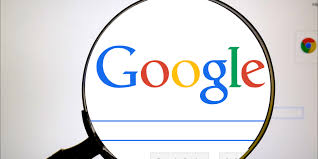
Breaking News
 THE CRYPTO VIGILANTE SUMMIT:
WHAT MATTERS MOST IN CRYPTO
THE CRYPTO VIGILANTE SUMMIT:
WHAT MATTERS MOST IN CRYPTO
 Retarded Or Evil? Leftist Arguments Justifying The Murder Of Charlie Kirk
Retarded Or Evil? Leftist Arguments Justifying The Murder Of Charlie Kirk
 Charlie Kirk once questioned if Ukraine would try to kill him (VIDEO)
Charlie Kirk once questioned if Ukraine would try to kill him (VIDEO)
 KOL060 | Guest on Ernest Hancock's Declare Your Independence radio show: intellectual property a
KOL060 | Guest on Ernest Hancock's Declare Your Independence radio show: intellectual property a
Top Tech News
 Tesla Megapack Keynote LIVE - TESLA is Making Transformers !!
Tesla Megapack Keynote LIVE - TESLA is Making Transformers !!
 Methylene chloride (CH2Cl?) and acetone (C?H?O) create a powerful paint remover...
Methylene chloride (CH2Cl?) and acetone (C?H?O) create a powerful paint remover...
 Engineer Builds His Own X-Ray After Hospital Charges Him $69K
Engineer Builds His Own X-Ray After Hospital Charges Him $69K
 Researchers create 2D nanomaterials with up to nine metals for extreme conditions
Researchers create 2D nanomaterials with up to nine metals for extreme conditions
 The Evolution of Electric Motors: From Bulky to Lightweight, Efficient Powerhouses
The Evolution of Electric Motors: From Bulky to Lightweight, Efficient Powerhouses
 3D-Printing 'Glue Gun' Can Repair Bone Fractures During Surgery Filling-in the Gaps Around..
3D-Printing 'Glue Gun' Can Repair Bone Fractures During Surgery Filling-in the Gaps Around..
 Kevlar-like EV battery material dissolves after use to recycle itself
Kevlar-like EV battery material dissolves after use to recycle itself
 Laser connects plane and satellite in breakthrough air-to-space link
Laser connects plane and satellite in breakthrough air-to-space link
 Lucid Motors' World-Leading Electric Powertrain Breakdown with Emad Dlala and Eric Bach
Lucid Motors' World-Leading Electric Powertrain Breakdown with Emad Dlala and Eric Bach
 Murder, UFOs & Antigravity Tech -- What's Really Happening at Huntsville, Alabama's Space Po
Murder, UFOs & Antigravity Tech -- What's Really Happening at Huntsville, Alabama's Space Po
Google Admits The Open Web Is In 'Rapid decline'

But in a court filing from last week, Google admitted that "the open web is already in rapid decline," as spotted earlier by Jason Kint and reported on by Search Engine Roundtable.
Google submitted the filing ahead of another trial that will determine how it will address its monopoly in the advertising technology business. The US Department of Justice recommends that Google break up its advertising business, but the company argues in the filing that this isn't ideal because it would "only accelerate" the decline of the open web, "harming publishers who currently rely on open-web display advertising revenue."
Google:
Finally, while Plaintiffs continue to advance essentially the same divestiture remedies they noticed in their complaint filed in January 2023, the world has continued to turn. Plaintiffs put forth remedies as if trial, the Court's liability decision, and remedies discovery never happened—and also as if the incredibly dynamic ad tech ecosystem had stood still while these judicial proceedings continued.
But the changes have been many: AI is reshaping ad tech at every level; non-open web display ad formats like Connected TV and retail media are exploding in popularity; and Google's competitors are directing their investments to these new growth areas. The fact is that today, the open web is already in rapid decline and Plaintiffs' divestiture proposal would only accelerate that decline, harming publishers who currently rely on open-web display advertising revenue. As the law makes clear, the last thing a court should do is intervene to reshape an industry that is already in the midst of being reshaped by market forces.
The statement sharply contrasts Google's recent narrative about the health of search on the web. Google has a clear incentive to make itself appear weaker or less monopolistic in the courtroom, but its admission reflects a reality many publishers are going through. Several digital publishers and independent website owners have reported experiencing a decline in traffic following changes to Google Search's algorithm and the rise of AI chatbots.
In an emailed statement to The Verge, Google spokesperson Jackie Berté said the statement is "one cherry-picked line that misrepresents" the company's legal filing. "It's clear from the preceding sentence that we're referring to 'open-web display advertising' and not the open web as a whole," Berté said. "We are pointing out the obvious: that investments in non-open web display advertising like connected TV and retail media are growing at the expense of those in open web display advertising."
When asked about changes to web traffic during an episode of Decoder in May, Google CEO Sundar Pichai said the company is "definitely sending traffic to a wider range of sources and publishers" following the rollout of AI search tools.



